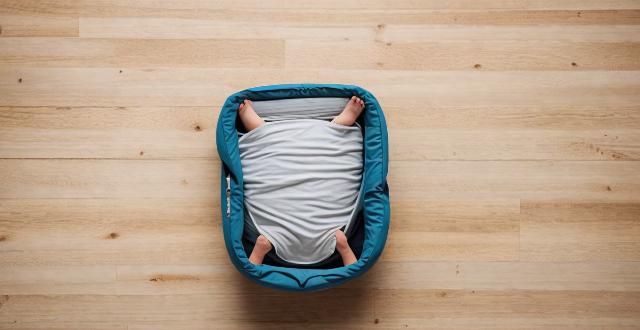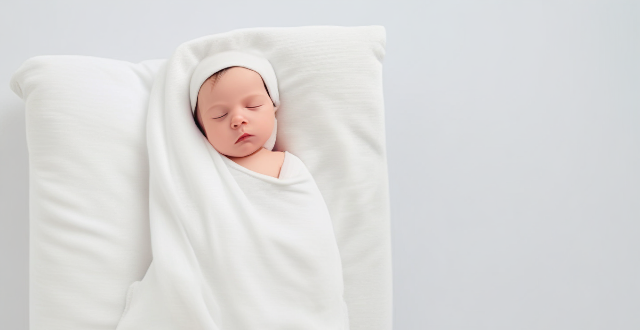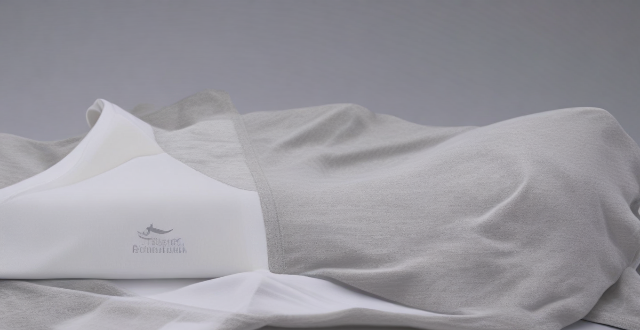Sleep Risk

Is there a link between sleep duration and sports injuries ?
This article explores the relationship between sleep duration and sports injuries, highlighting the importance of adequate sleep for athletes. Studies have found that both short and long sleep durations can increase the risk of injury, emphasizing the need for a balanced approach to sleep. Athletes are advised to establish consistent sleep habits, aim for 7-9 hours of sleep per night, and monitor their sleep patterns to minimize the risk of sports injuries and enhance performance.

What role does sleep play in managing stress ?
Sleep is crucial in managing stress by regulating hormones, improving cognition, promoting emotional stability, offering physical health benefits, and enhancing quality of life. Prioritizing sleep is key for effective stress management.

What are the best practices for infant sleep safety ?
Best practices for infant sleep safety include creating a safe sleep environment, following safe sleep positioning, ensuring proper room conditions, and monitoring your baby's sleep. These practices help minimize the risk of Sudden Infant Death Syndrome (SIDS) and other sleep-related deaths, promoting better quality sleep and overall health for newborns and young children.

How does adequate sleep play a role in women's health ?
Adequate sleep is vital for women's health, affecting immunity, hormone balance, weight management, mental well-being, cardiovascular health, skin condition, chronic disease prevention, and overall quality of life. Prioritizing sleep can lead to fewer sick days, better reproductive health, reduced stress, improved mood and cognitive function, lower risk of heart disease and stroke, delayed aging signs, and a higher quality of life.

What role does sleep play in maintaining personal health ?
The text discusses the importance of sleep in maintaining personal health, including its roles in physical restoration and repair, energy conservation, weight management, memory consolidation, emotional regulation, cognitive function, stress reduction, mood stabilization, and relationship health. Adequate sleep is crucial for overall well-being, and prioritizing it can support physical, mental, and emotional health.

How does lack of sleep impact athletic performance ?
The text discusses the importance of sleep for athletes, explaining that adequate sleep is essential for muscle recovery and repair, cognitive function, and regulation of energy levels. Lack of sleep can negatively impact athletic performance by decreasing endurance, impairing reaction time and coordination, increasing the risk of injury, altering mood and mental health, and reducing motivation and focus during training or competition. The article concludes that prioritizing sleep as part of an athlete's overall training regimen is crucial for optimal performance.

How can I improve my sleep quality ?
Improving sleep quality involves establishing a bedtime routine, creating a comfortable sleep environment, limiting caffeine and alcohol intake, avoiding electronics before bed, exercising regularly, managing stress levels, and considering natural sleep aids.

Does exercise increase deep sleep ?
Exercise can increase deep sleep by promoting thermal downregulation and improving sleep efficiency over time. Regular exercise is recommended to enhance sleep quality, but timing is crucial to avoid sleep disruption.

How does sleep quality affect athletic performance and health ?
This text explains how sleep quality affects athletic performance and overall health. It emphasizes the importance of sleep for physical recovery, mental well-being, and immune system support in athletes. Poor sleep quality can lead to decreased performance, increased injury risk, and mental health issues. The text provides tips for improving sleep quality, such as establishing a consistent sleep schedule and creating a comfortable sleep environment. Adequate sleep is crucial for optimal athletic performance and overall health.

What are the effects of poor sleep on endurance sports ?
Poor sleep can negatively impact endurance sports performance by decreasing athletic performance, impairing cognitive function, increasing the risk of injury, and elevating stress levels. Endurance athletes should prioritize getting enough high-quality sleep each night to optimize their physical and mental abilities while reducing their risk of injury and illness.

What is the importance of sleep in the development of teenagers ?
Sleep is crucial for teenagers' physical, mental, and emotional development. It aids growth, strengthens the immune system, and helps with weight management. Adequate sleep improves memory, cognitive function, and emotional regulation. It also reduces stress, enhances social interaction, and boosts self-esteem. Parents should encourage good sleep habits to support their teenagers' healthy development.

Can excessive exercise lead to sleep disorders ?
Overtraining can cause sleep disorders by disrupting normal sleep patterns and causing physical stress and fatigue. Relaxation techniques such as meditation, yoga, or deep breathing exercises can help calm your mind and body before bed. Adjusting your exercise routine and creating a consistent sleep schedule can also improve sleep quality. If you continue to experience sleep disturbances, consult with a healthcare professional for further evaluation and treatment.

What is the relationship between sleep and athletic performance ?
The relationship between sleep and athletic performance is crucial, as adequate sleep is essential for athletes to perform at their best both physically and mentally. During sleep, the body undergoes recovery and repair processes, including muscle growth and repair and immune system functioning. Sleep also plays a vital role in maintaining mental health and cognitive functioning, such as concentration and focus and mood regulation. Additionally, sleep is crucial for maintaining energy levels and endurance, particularly for endurance athletes. However, sleep deprivation can have several negative effects on an athlete's performance, including decreased reaction time, impaired coordination, reduced endurance, increased perceived exertion, and altered perception. Therefore, it is essential for athletes to prioritize their sleep and ensure they get enough restful sleep each night to maximize their athletic performance.

How does sleep impact reaction time and coordination in sports ?
Sleep is a critical determinant of athletic performance, significantly influencing reaction time and coordination. Adequate rest is crucial for muscle recovery and cognitive functions after daytime activities. Studies show that approximately 50%-78% of elite athletes suffer from some form of sleep disorder, with about 25% experiencing severe disorders. Shortened sleep duration negatively affects athletic abilities such as strength and anaerobic capacity. It also increases the risk of injuries by up to 1.7 times in those sleeping less than 8 hours per night. Proper sleep enhances cognitive functions, including decision making and reaction time, which are critical for success in sports. Sleep plays a vital role in the consolidation of motor skills, essential for coordination and precision in sports. Adequate sleep can reduce injury risks by up to 60%, suggesting better muscle recovery and maintenance of physical coordination. Short naps (20-30 minutes) can significantly improve alertness, attention, and overall mental state, leading to better performance. For athletes with sleep deficits, naps have been shown to ameliorate physiological and cognitive conditions, enhancing athletic performance. Combining a short nap with caffeine consumption can be an effective strategy to reduce post-lunch drowsiness and boost afternoon performance. Athletes aged 25 and above tend to report poorer sleep quality than their younger counterparts, indicating varying sleep needs across different age groups. Female athletes are more likely to experience sleep issues, necessitating tailored sleep strategies. Youth athletes should aim for 8 to 10 hours of sleep to support their developmental needs, while adult athletes should target 7 to 9 hours of sleep to ensure adequate recovery and performance optimization.

How important is rest and sleep in sports recovery ?
Rest and sleep are crucial components of an athlete's recovery regimen, essential for muscle repair, CNS recharge, and mental clarity. Quality and quantity of sleep directly impact athletic performance through deep sleep phases and REM sleep. Practical tips include creating an optimal sleep environment, developing pre-sleep routines, and maintaining proper nutrition and hydration. Prioritizing rest and sleep is key to achieving peak physical condition and driving overall athletic success.

Can exercising too close to bedtime interfere with sleep ?
Exercising too close to bedtime can interfere with sleep due to factors like increased heart rate, elevated body temperature, release of stimulating hormones, activation of the nervous system, muscle soreness, and digestive activity. To avoid sleep interference, it's recommended to finish workouts at least 3 hours before bedtime, choose lighter exercises closer to bedtime, create a calming pre-sleep routine, and be mindful of post-exercise nutrition.

How much exercise is needed to improve sleep ?
The text discusses the importance of regular physical activity in improving sleep quality. It highlights how exercise can lead to better sleep patterns, faster sleep onset, deeper sleep, and improved sleep efficiency. The amount of exercise needed varies depending on individual factors, but general guidelines suggest at least 150 minutes of moderate-intensity aerobic exercise per week. Even small amounts of physical activity can have positive effects on sleep. Various types of exercise, including aerobic exercises, resistance training, yoga, and Pilates, can contribute to improved sleep quality. Timing your exercise sessions appropriately is crucial for maximizing their benefits for sleep improvement. Consistency is key when it comes to reaping the benefits of exercise on sleep quality.

What are the benefits and risks of co-sleeping with your baby ?
Co-sleeping with your baby can promote bonding, ease breastfeeding, regulate sleep, reduce SIDS risk, and encourage restful sleep for parents. However, it also carries risks such as increased SIDS risk in unsafe conditions, chance of rolling over, disrupted sleep for parents, difficulty in establishing independent sleep, and potential for dependency. Safety should be the top priority when considering co-sleeping.

How does shift work impact sleep patterns, and what can be done about it ?
Shift work can significantly disrupt sleep patterns due to conflicts with the natural circadian rhythm. Strategies for managing sleep disruptions include maintaining a consistent sleep schedule, creating a sleep-friendly environment, avoiding stimulants before bedtime, getting adequate exercise, and seeking professional help if needed.

What is the relationship between sleep and recovery in high-level sports performance ?
Sleep is a vital component of recovery for high-level athletes, playing a significant role in muscle repair, energy restoration, immune function, cognitive function, and emotional well-being. Optimal sleep can lead to improved performance, reduced injury risk, enhanced learning and adaptation, increased motivation and focus, and better weight management. To maximize the benefits of sleep for recovery, athletes should establish good sleep habits such as maintaining a consistent sleep schedule, creating a conducive sleep environment, limiting caffeine and alcohol intake, practicing relaxation techniques, and avoiding naps or keeping them short and early in the day.

Is there a specific diet that can help with better sleep ?
Diet plays a crucial role in sleep patterns, with certain foods promoting relaxation and others disrupting sleep. The best foods for better sleep include turkey, milk, bananas, almonds, and chamomile tea, while caffeine, alcohol, spicy foods, sugary snacks, and heavy meals should be avoided before bedtime. Incorporating these dietary changes can help improve the quality of sleep and overall well-being.

Are there any particular exercises or stretches that promote better sleep ?
**Exercises and Stretches for Better Sleep** Sleep is crucial for overall health, and poor sleep can lead to various issues. Specific exercises and stretches can improve sleep quality. These include yoga poses like Child's Pose and Legs Up the Wall, meditation techniques such as Body Scan and Guided Meditation, gentle aerobic exercises like walking and swimming, stretching exercises including neck stretches and shoulder shrugs, and deep breathing exercises like the 4-7-8 technique and diaphragmatic breathing. Incorporating these into your routine can significantly improve your sleep quality.

What is the relationship between exercise, sleep quality, and emotional well-being ?
The text explores the interconnectedness of exercise, sleep quality, and emotional well-being. It outlines how physical activity enhances mood through endorphin release and long-term health benefits. Sleep quality is crucial for emotional processing and resilience against stress. Mutual benefits exist between exercise and sleep, with each improving the other. A holistic approach to health includes attention to all three components for optimal well-being.

How do pets, especially dogs and cats, influence human sleep ?
Pets, particularly dogs and cats, can significantly impact human sleep. They can enhance feelings of safety and comfort, reduce stress and anxiety, and provide social support, leading to better sleep quality. However, they may also cause disruptions during the night, trigger allergies or respiratory issues, and affect temperature regulation, negatively impacting sleep. To manage these effects, pet owners should establish separate sleeping areas, maintain consistent routines, address health issues, consider allergy treatments, and adapt to their pets' needs.

What role does stress play in sleep disturbances and how can it be managed ?
Stress can significantly impact sleep quality by causing difficulty falling asleep, frequent awakenings, light sleep, and early morning awakenings. Managing stress through relaxation techniques, regular exercise, healthy eating habits, a consistent bedtime routine, a comfortable sleep environment, limited screen time, and seeking professional help when needed can improve sleep quality and overall well-being.

In what ways does exercise improve mental health, potentially reducing the risk of chronic diseases ?
Regular exercise has been found to have numerous mental health benefits, such as boosting mood and reducing stress, improving sleep quality, enhancing cognitive function, promoting social interaction, and boosting self-esteem and body image. Additionally, regular physical activity can potentially reduce the risk of chronic diseases like cardiovascular diseases, diabetes, and obesity. Incorporating exercise into your daily routine can improve both physical and mental well-being.

Does consistent exercise regulate sleep patterns ?
Consistent exercise has been shown to have a positive impact on sleep patterns, helping regulate the body's internal clock and increase the production of sleep-promoting hormones. Regular physical activity can lead to better sleep quality, reduced stress and anxiety, and improved overall health. To reap these benefits, it's important to incorporate regular exercise into your routine, starting slowly and gradually increasing intensity and duration over time.

How does exercise affect sleep quality ?
Exercise is crucial for maintaining a healthy lifestyle and has a significant impact on sleep quality. Regular physical activity can improve sleep onset, increase deep sleep, reduce stress and anxiety, regulate body temperature, and promote better breathing during sleep. To incorporate exercise into your daily routine, start slowly, choose enjoyable activities, schedule workouts, mix up your routine, be mindful of timing, listen to your body, stay hydrated, get enough rest, seek support, and track your progress.

Are there any health concerns associated with prolonged use of sports tracking devices ?
Sports tracking devices have become increasingly popular in recent years, as they allow individuals to monitor their physical activity and fitness levels. However, there are potential health concerns associated with the prolonged use of these devices. One major concern is the excessive reliance on data provided by sports tracking devices. While it is helpful to track your progress and set goals, relying solely on the numbers can lead to a disconnect between how you feel physically and what the device is telling you. This can result in overtraining or pushing yourself too hard, which can cause injuries or burnout. Another issue is the neglect of other aspects of fitness that cannot be measured by sports tracking devices. For example, flexibility, balance, and coordination are important components of overall fitness but are often overlooked when focusing solely on metrics like steps taken or calories burned. This can lead to imbalances in your fitness routine and potentially increase your risk of injury. Prolonged use of sports tracking devices can also cause skin irritation or allergies due to the materials used in the device's construction. Some people may be sensitive to certain metals, plastics, or adhesives used in the device, which can cause redness, itching, or swelling at the site of contact. Additionally, wearing a sports tracking device constantly can create a warm, moist environment on your skin that is ideal for bacterial growth. This can increase your risk of developing infections such as cellulitis or folliculitis, especially if you do not clean the device regularly or give your skin a chance to breathe by removing the device occasionally. Many sports tracking devices also have sleep tracking functionality, which can be helpful for monitoring your sleep patterns and identifying areas for improvement. However, relying too heavily on this feature can disrupt your natural sleep cycle and contribute to poor sleep quality. The constant monitoring and analysis of your sleep data can create anxiety around getting enough rest, leading to increased stress levels and further sleep disturbances. Another issue related to sleep disruption is the blue light emission from many sports tracking devices. Blue light has been shown to suppress melatonin production, a hormone responsible for regulating sleep-wake cycles. Exposure to blue light before bedtime can make it more difficult to fall asleep and stay asleep throughout the night. To mitigate these risks, it is recommended to: - Balance Data with Self-Awareness: Use the data provided by sports tracking devices as a guide rather than a definitive measure of your fitness level. Pay attention to how your body feels during exercise and listen to any signs of fatigue or discomfort. - Incorporate Variety into Your Fitness Routine: Include activities that focus on flexibility, balance, and coordination in addition to those that can be tracked by sports tracking devices. This will help ensure a well-rounded fitness routine and reduce the risk of injury. - Maintain Proper Hygiene: Clean your sports tracking device regularly according to the manufacturer's instructions and give your skin a chance to breathe by removing the device occasionally. This will help prevent skin irritation and reduce the risk of infection. - Limit Sleep Tracking and Blue Light Exposure: Be mindful of how much you rely on sleep tracking features and avoid using devices that emit blue light before bedtime. This will help maintain healthy sleep patterns and promote overall well-being.

How does exercise affect sleep patterns and quality ?
Exercise significantly influences sleep patterns and quality. Immediate effects include increased alertness and better body temperature regulation for sleep. Long-term, regular exercise improves sleep quality and regulates sleep patterns. Different types of exercise—aerobic, anaerobic, and mindful movements like yoga—all positively affect sleep but may require varying recovery times. The timing of exercise is crucial; morning workouts set the day's tone with minimal sleep interference, while late-night exercises can hinder sleep preparation. Tailoring workout routines to individual needs optimizes rest and overall well-being.